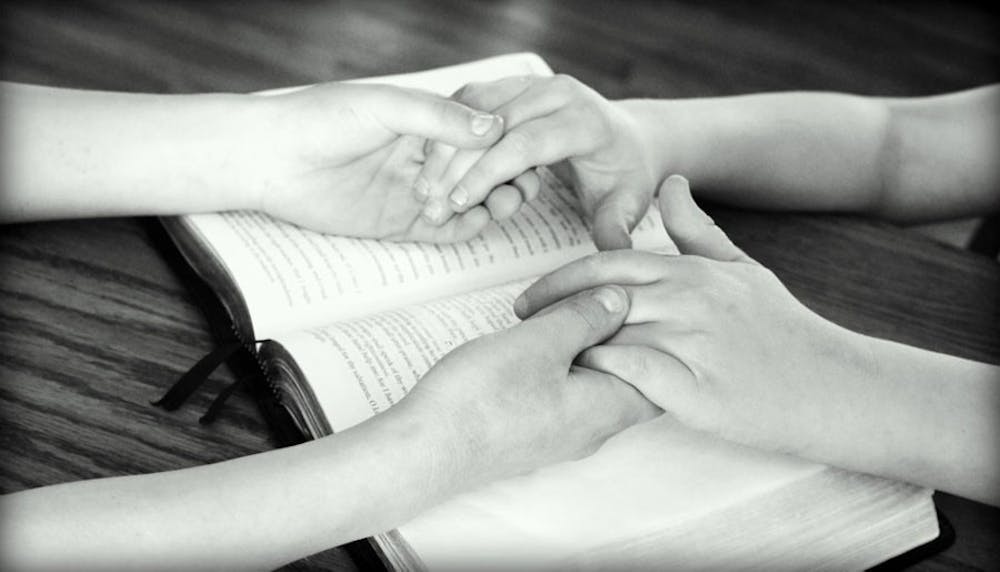By Charnell Peters | Contributor
Sarah Salvador, a recent graduate from Taylor, is experiencing a troubled transition into the secular workforce. She wants to minister Christ's redemptive love and truth to a world in need, but she claims that her four years at Taylor didn't prepare her enough for the task.
"Out here, the persecution is very real," Salvador said.
Salvador acquired a job as an acquisitions editor at a publishing house a few months after college. Things were going well until her boss reprimanded her for using personal religious bias to reject viable proposals.
Salvador wanted to provide a space to speak the truth in love, so she asked her boss on a Starbucks date, during which Salvador explained that accepting books with cussing, premarital sex or gay relationships undermined her credibility as a Christian.
Salvador's boss asked her if she knew she was working at a secular publishing house.
Salvador asked her boss if she wanted to come to church with her over the weekend.
After being fired from her job, Salvador concluded that her termination was not her fault, but in fact, Taylor's. Salvador took to Facebook and began a group entitled "My CCCU Education Didn't Prepare Me for Life," or MCEDPML, on which she listed the ways Taylor had failed her. She was overwhelmed with the response as hundreds of like-minded Council of Christian Colleges & Universities (CCCU) graduates joined the group and began telling their stories.
Keith Bush, an alumnus of Bibleville University, finds a sense of intentional community within MCEDPML's online group.
"Out here, community doesn't work," Bush said. "I'm such a servant leader, but my coworkers are still atheists."
Other troubles, such as holiday greetings and dress codes at secular workplaces, are regular topics of discussion. People's comments include:
"We didn't have rigorous discussion about this at my university, so how can I form an opinion about it?" and "Girls don't even care if you're stumbling because of them."
MCEDPML members respond to each other's posts with appropriate emojis, condolences and Scripture. Salvador says the members do everything they can to support one another because many have not revealed to their families and friends how dissatisfied they were with their education.
"I haven't come out of the closet about MCEDPML to my friends and family yet," said Bethany Jackson, an alumna of Born-Again Christian University. "But I have great support from my fellow members."
Perhaps the tight-knit quality of the MCEDPML community is necessary, because they face opposition. Professors, administrators, current students and graduates of CCCU campuses are speaking against MCEDPML's accusations.
Should CCCU colleges change to better prepare students for the rude awakening of the secular workplace? Dr. Daniel Doofenshmirtz from Believer University thinks not.
"We offer them transferable skills," he said. "A liberal arts education provides students with ample material and instruction to be able to make wise decisions in any arena of work after they graduate."
Professors at other Christian colleges agree. Dr. Senegal from Atonement Pacific said, "If a program almost exclusively instructs students on their work in the Christian sector, that is a disservice. But most of these individuals didn't come from imbalanced programs. They just want their work environments and everyone in them to share their values and beliefs. That's not a reasonable request."
The MCEDPML community, led by Salvador, continues to respond to accusations by making and sharing memes and passive-aggressively subtweeting. Salvador is considering hiring a social media manager to help spread the word: CCCUs are failing students.
But it seems as if their ranks may be weakening. Last week, a comment war broke out on a post about complementarianism and egalitarianism. With members threatening to split from the group and begin their own, MCEDPML's future appears unsure.
Salvador remains confident that their work will endure, as there are plenty of ways CCCU education falls short. She believes that all students at CCCUs should consider how they can disavow their educational experiences and tell the world how they have been victimized, despite their obvious privilege. In this way, Salvador believes, CCCUs will be forced to recognize what a poor job they do to prepare students and will change their ways-perhaps adding classes about how to navigate the terrors of the secular world.
Salvador had no comment when asked how she feels about the thousands upon thousands of CCCU graduates thriving in all areas of the workforce all over the globe. She remains optimistic that the cause of the MCEDPML members is not merely public whining about deficits in their own abilities to handle life outside of a CCCU.
"Life after graduation is hard, and it shouldn't be," Salvador said. "We know who's to blame for that."
When asked if CCCUs do anything right, Salvador admitted that CCCU education prepares students well for marriage.
This article is satire. All individuals and universities mentioned (except Taylor) are fictional.





